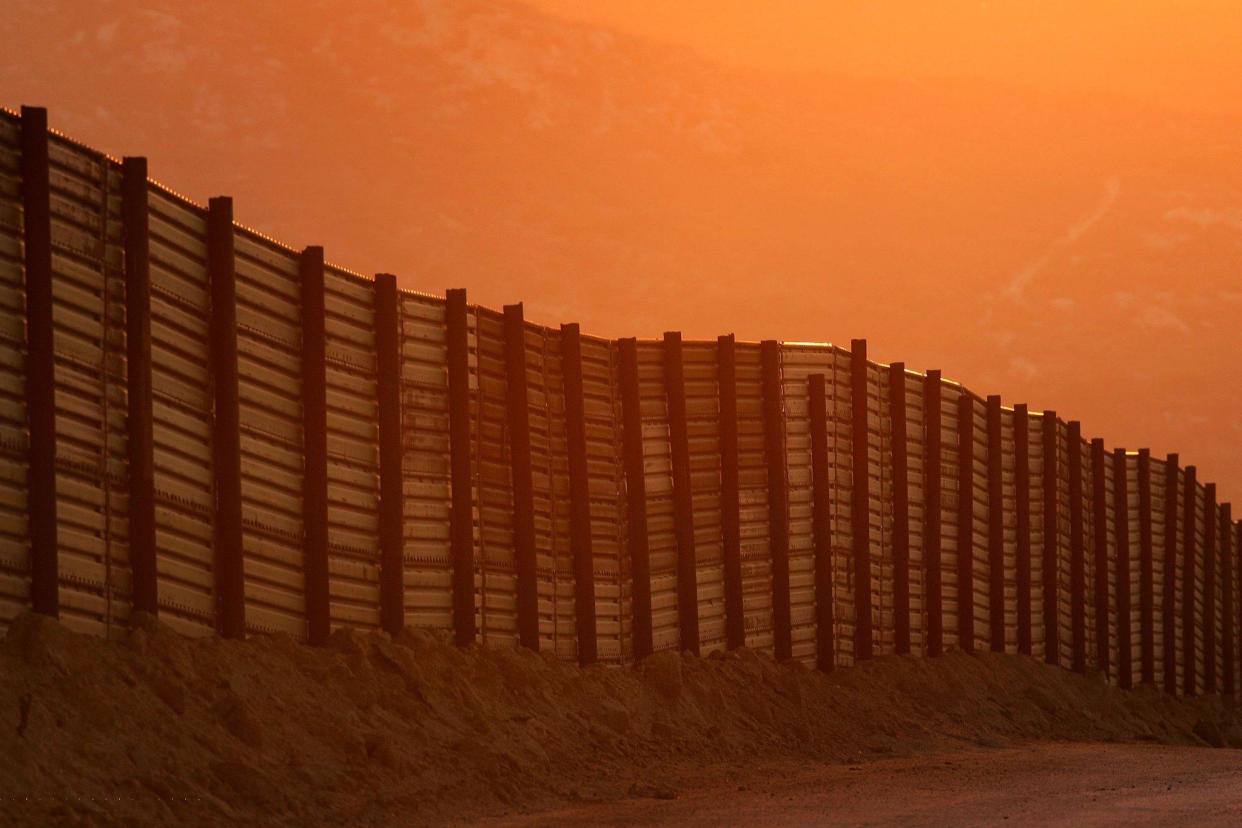Donald Trump's border wall to be exempted from laws and environmental reviews so it can be built

Donald Trump's border wall could break numerous laws and fail various environmental reviews. But that isn't going to matter.
The Trump administration has said that it will waive the wall through those laws and allow the president to keep to his campaign pledge.
Studies have suggested that the border wall is a threat to the environment. As well as the huge amount of unclean resources and energy required to build the wall, it will also disrupt the life of the animals and plants that occur around the area it will be built, environmentalists have warned.
The Department for Homeland Security said it will soon published in the Federal Register a notice that allows the government to be exempted from the National Environmental Protection Act, as well as a whole host of other laws. Ordinarily, that act requires that such a building would have to be extensively examined to work out whether it will damage the environment.
The exemption hasn't been used since 2008, and it's only the sixth time since 2005. It was first passed that year, as an attempt to get border walls exempted from repeated and unsuccessful court challenges that tried to stop a border wall being built in San Diego on environmental grounds.
Congress passed the law to try and stop similar challenges when government came to build walls elsewhere. It allowed George W Bush to build hundreds of miles of fencing across the US-Mexico border.
Last week, the House of Representatives approved the administration's request for $1.6 billion to start building Trump's border wall, which would include replacing 14 miles (22 kilometers) in San Diego covered by the latest waiver and building 60 miles (96 kilometers) of new barriers in Texas' Rio Grande Valley. It was unclear if or when Homeland Security would issue waivers for Texas, which is currently the busiest corridor for illegal crossings.
The Center for Biological Diversity will challenge the San Diego waiver by arguing that the 2005 law does not apply to replacing barriers, said Brian Segee, an attorney for the environmental advocacy group based in Tucson, Arizona.
The group has already sued the administration over replacement of the San Diego wall and plans to build prototypes in San Diego for Trump's effort, which he has called a "big, beautiful wall."
The case is before U.S. District Judge Gonzalo Curiel, a target of Trump's enduring scorn over lawsuits that alleged fraud at the president's now-defunct Trump University and were settled last year shortly before trial. Curiel presided over that case.
"The waiver has already been called the broadest waiver in U.S. history," Segee said. "Any attempt to enlarge it further beyond the scope is something we're going to challenge."
Homeland Security said the San Diego waiver falls within the scope of the 2005 law and that the area is a high priority for new security measures including construction of border barriers and roads.
The Border Patrol's San Diego sector logged nearly 32,000 arrests last year — 8 percent of the total on the U.S. border with Mexico — and seized more than 4 tons of marijuana and more than a half-ton of cocaine.
"The sector remains an area of high illegal entry for which there is an immediate need to improve current infrastructure and construct additional border barriers and roads," the department said in its statement.
Additional reporting by Associated Press

